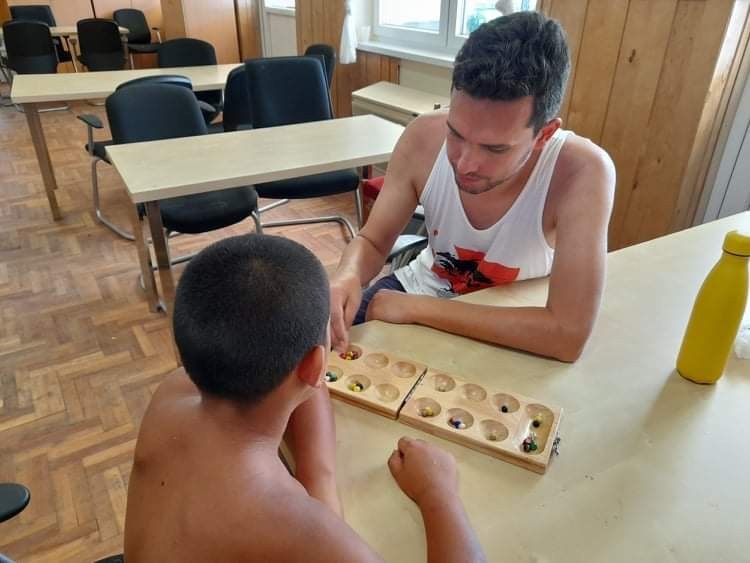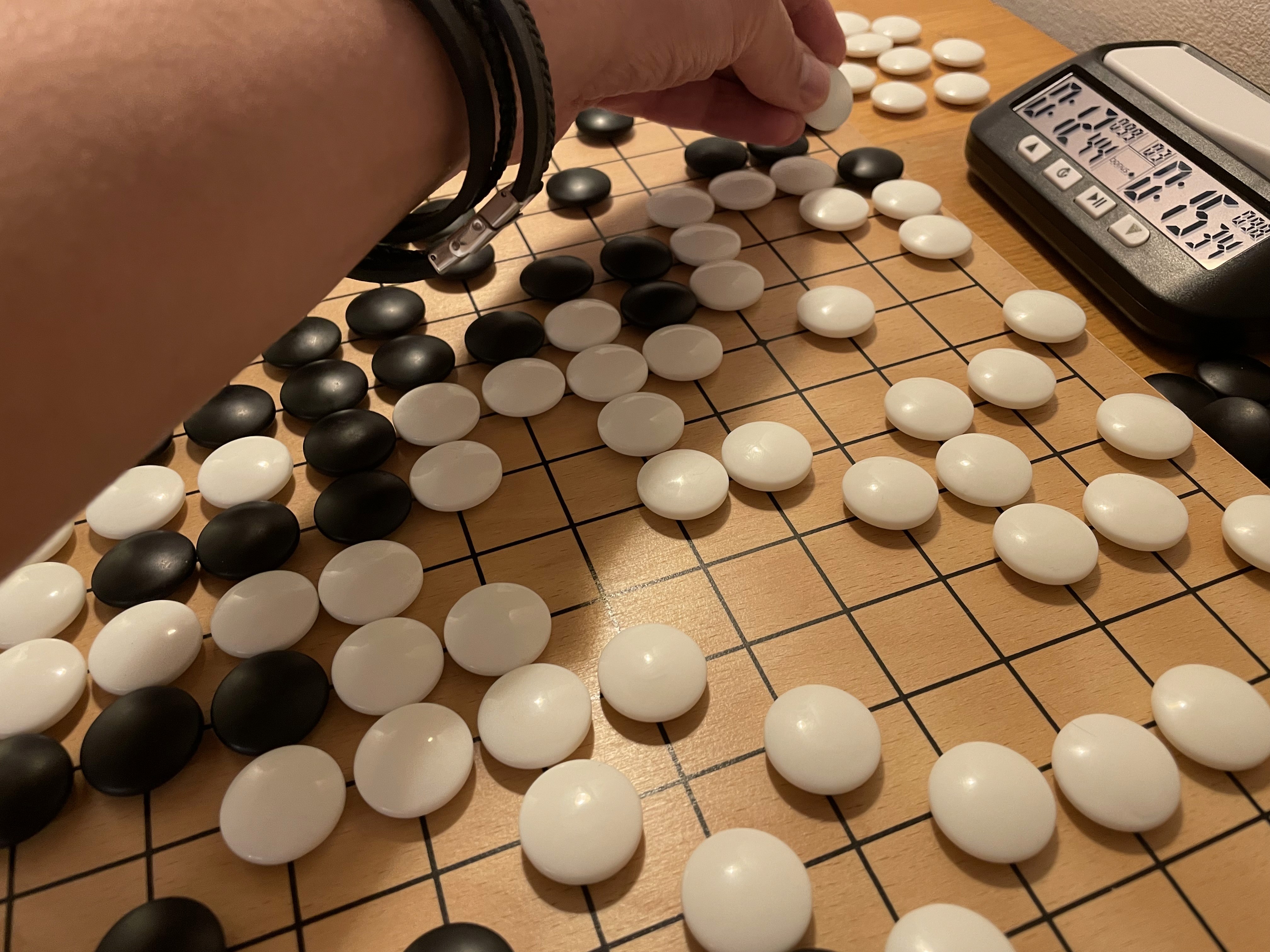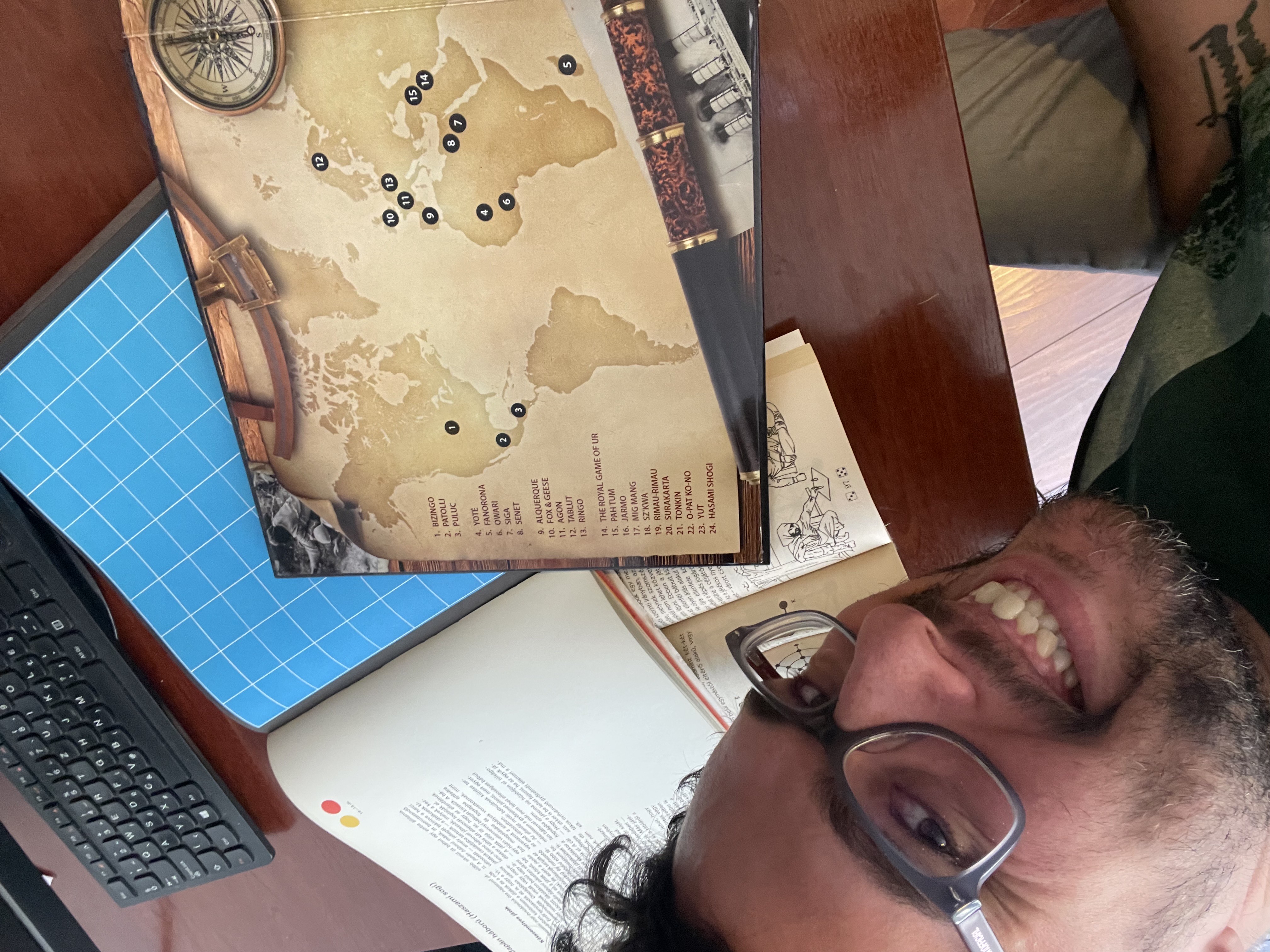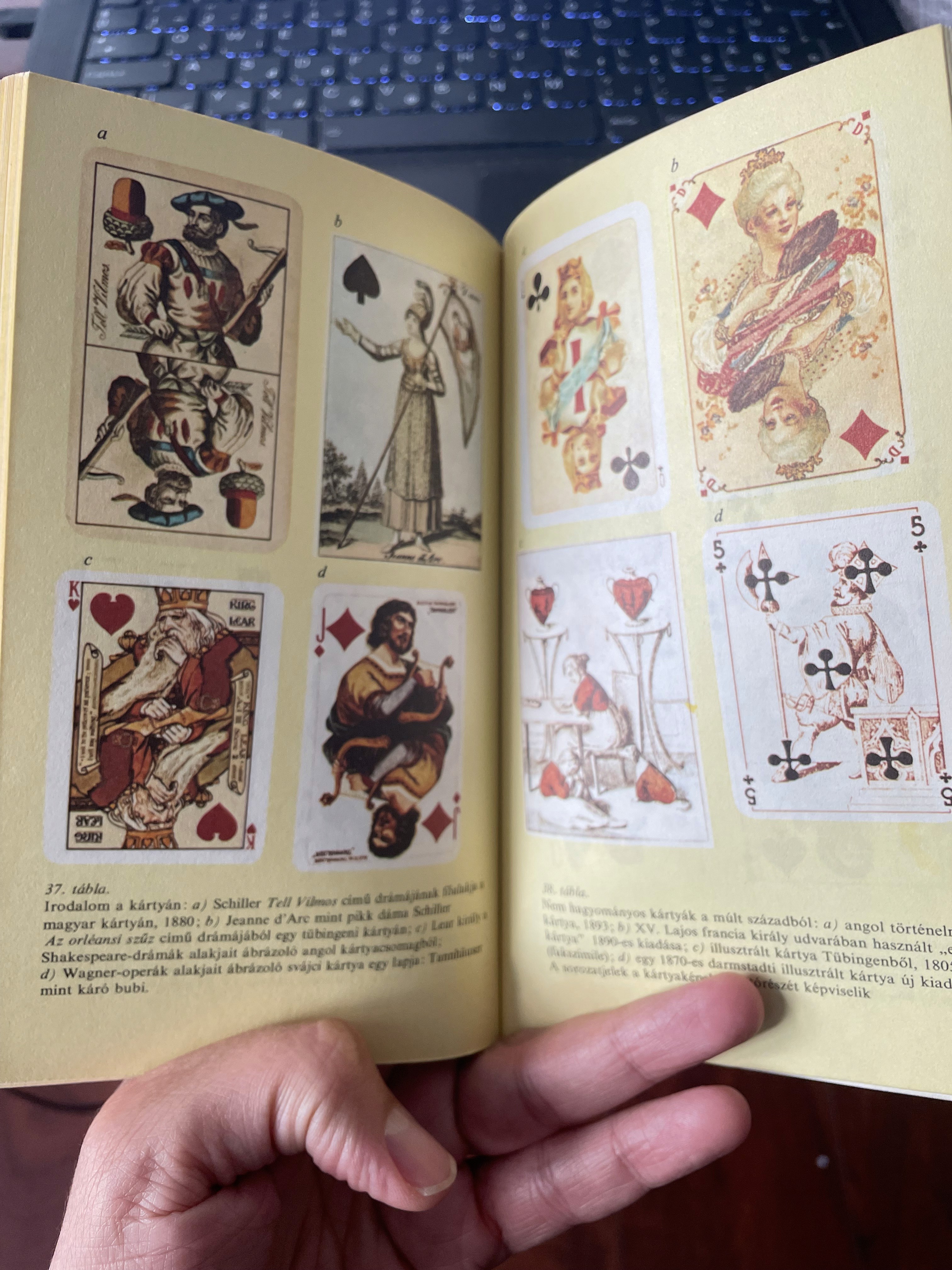It's often clear that even the modern games of the 1970s and 1980s are unfamiliar to today's players—many simply view Catan (1995) as the origin point.
While Catan is certainly a significant title, Hase und Igel (1973) may be even more important. But if we're talking about board game literacy, we need to go much, much further back in history.
Without Go, we interpret modern area control games differently. Five Tribes reveals deeper layers when we know it draws from Mancala.
At PlayWise, we believe it's worth knowing the past—and not just as dry history. These classic games are still worth playing, because they still hold up today.
Where will today's trendy board games be in 100, 1000, or 2000 years? What do these ancient board games know that we might have forgotten?
Here, we offer a brief overview of some internationally known traditional games—but we encourage you to dig deeper and play them yourselves!
Where should you start exploring historical board games?
Right now, perhaps the most exciting and modern initiative in this field is the Ludos series by Lemery Games.
Read PlayWise's review of the Ludos Asia print-and-play version to learn more!China: The Strategic Depths of Xiangqi
Xiangqi, commonly known as Chinese Chess, has been played in its current form for roughly 800 years. Interestingly, due to its immense popularity in its home country, more people play Xiangqi than the globally recognized Chess.
There are many similarities between the two games: both are two-player strategy games with pieces that follow unique movement rules. However, the board layout in Xiangqi differs significantly, offering a distinct gameplay experience.
Another interesting difference is that in Chinese Chess, you lose the game if you have no legal moves left. In Western Chess, this results in a stalemate and a draw.
While some rules may seem harder to grasp from a Western perspective, like with most games, it only feels more complicated at first—just like Chess does. We typically learn Chess in childhood, we know it, we play it, so it feels more intuitive. But at first glance, Chess can be just as complex.
(A lesser-known but fascinating Chinese game is Sz'kwa, which is related to Go and is played on the same board as Xi Gua—also known as Watermelon Chess.)
India: The Dual Delight of Carrom & Pachisi
Pachisi is a game everyone knows—though most people don't realize they do. That's because its modern version, Ludo, is played almost everywhere in the world.
From a modern board gaming perspective, Ludo is considered outdated due to the overwhelming role of luck. And speaking of India and luck, we should also mention Snakes and Ladders, a game where fate tosses players around with no decisions or influence of their own.
It's also worth highlighting Carrom, a game that remains widely popular to this day and stands as one of the most beautiful and fascinating ancestors of modern dexterity games.
Researching Through Books
Of course, researching games doesn't have to be limited to the internet—it's well worth building up a board game–focused library as well.
Several books were extremely helpful in writing this article; many of them already organize games thematically, and two even come with game boards and pieces included, so you can try the games out yourself.
While one of them—Pierrot's Agon—was only published in Hungary, Zdzisław Nowak's From Mill to Go is, of course, available in Polish as well—though, according to what I've found online, it seems to have gained its greatest popularity here in Hungary.
Perhaps the most internationally well-known book in this category is Sid Sackson's The Book of Classic Board Games, published in 1991.
It's definitely worth browsing your local book market—you might just come across similar gems.

United States: The Legacy of Monopoly & The Game of Life
The U.S., a relatively younger nation, boasts games that have become household names worldwide. The undying popularity of Monopoly and The Game of Life underscores America's love for entrepreneurial and life-simulation themes.
To include a game that fits a bit more naturally into the list from the USA, it's worth mentioning Bizingo, a game dating back to the mid-19th century.
This war-themed strategy game stands out with its triangular board and triangular spaces, along with simple, easy-to-learn rules. It may not be the most strategically deep title among those listed here, but with aggressive players, it can lead to surprisingly tense and exciting matches.
The original board features 157 spaces, making for a fairly long game, though smaller variants also exist.
Indonesia: The Hidden Loops of Strategy
While Indonesia also has its own Mancala-style games—known as Dakon or Congklak—they also have a truly unique and distinctive game: Surakarta.
Even the board itself stands out dramatically from anything else you might know. Little is known about the game's origins—or its age—but it's definitely worth exploring if you enjoy tactical battle games, as it features an unusual capture mechanic unlike any other.
Using the loops in the corners of the board, pieces (soldiers) can suddenly capture from a distance, often almost invisibly sneaking into striking positions.
Of course, every system can be learned, but this one is guaranteed to feel special for a long time.
Japan's Unique Take on Chess
Even though other countries on this list may be more populous, when it comes to ancient games, Japan is impossible to overlook. They have their own unique form of chess: Shogi. While some of the pieces share names with those in Western Chess, their movement rules differ entirely. The board is also different in size—9x9 squares, compared to Chess's 64-space board.
The most striking difference, which significantly affects gameplay, is that Shogi pieces are not distinguished by color, only by orientation. This is important because captured enemy pieces can be brought back into play on your side, making for dynamic and constantly shifting battles.
Another simpler yet exciting Japanese game is Hasami Shogi, where identical pieces are used to outmaneuver the opponent with smart tactics. Victory doesn't necessarily come from total elimination—you win by forming a straight line of five of your own pieces.
Go
Of course, Go really should have been discussed under China, but the truth is that Japan and Korea have contributed so much to its modern form, and its spread is more often associated with East Asia as a whole, rather than just China.
Perhaps Go doesn't even need much introduction—it's arguably the simplest and one of the deepest games in the world, where humans were able to outplay computers for a remarkably long time.
We had to wait until 2016 for artificial intelligence to defeat a world champion in Go, while in Chess, we had already lost that battle by 1997.

Africa: Owari and the World of Mancala – Simplicity in Motion
Let's cheat a little again: Mancala-type games are widespread not only across Africa, but truly all around the world. One of the most well-known versions is Owari, originally from Ghana—though many may remember a similar version from old Nokia phones, where it appeared under the name Bantumi.
The rules vary, but common elements include dropping, collecting, and capturing stones, all in rhythmic, circular motion. It's a game with simple rules but real depth, and it offers a highly meditative experience.
In our experience, it's one of the easiest abstract games to teach children, and it comes with a wealth of developmental benefits.

Russia: The Wit of Durak
Durak, a card game synonymous with Russian leisure, offers a delightful blend of strategy, wit, and a pinch of deceit. While the exact origins of Durak are debated, its presence in Russian folklore and literature is undeniable. Players aim to shed all their cards, deploying tactics to outwit their opponents. The last person left with cards is the 'durak' or fool, providing endless amusement and playful banter.
Interestingly, the game has never faded into obscurity, and has even been picked up by online platforms in recent years. From a historical perspective, it's no surprise that the game is also known in Hungary.
More broadly, the knowledge of classic, traditional, and national card games is an important yet often overlooked area. It's incredibly entertaining to see how some people are amazed by certain modern card games, while their roots can be found in popular, time-tested classics—many of which are still played today using nothing more than simple, standard card decks.

In Conclusion
Getting to know and understand different cultures can happen even through board games.
Surely, countless fascinating games were left out of the list above—but even so, it remains a rich and diverse collection you could explore for hours. And that kind of exploration is truly worth it—we highly recommend it.
Not just for the historical curiosity, but for a deeper understanding of the golden age of modern board games as well. Games that have lived with us for centuries—or even millennia—can reveal a great deal about the nature of humans who play, people like us, especially if this is the kind of thing we're drawn to.
Your thoughts?
We'd love to hear your new ideas, and thoughts on our above list. Join the conversation!
Related Reading
No spam, ever. Unsubscribe anytime.
Spread the Fun of Learning!
Love our content? Show your support by sharing our page with your friends and help us inspire more families and educators with the joy of learning through play! Your shares truly make a difference. Thank you for being a wonderful part of our community!